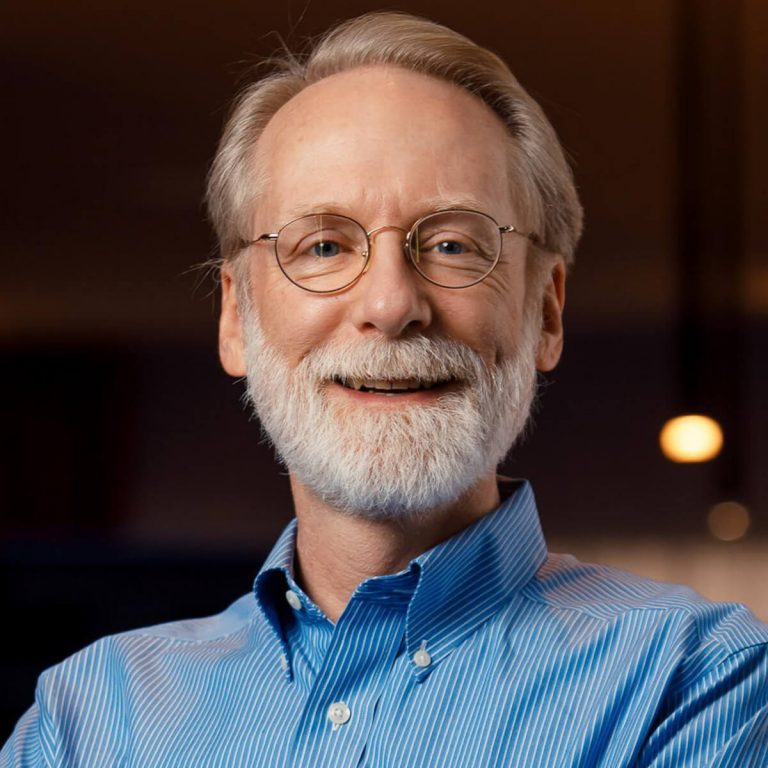Message from the Chair
2022 - 2023 in Retrospect

Dear friends,
As I write this in mid September, I am almost a quarter of the way through the fourth and final year of my term as department chair. I am delighted to share that Dean Heinzelman has selected Chen Ding to succeed me next July. In the intervening months he is serving as Associate Chair.
As the world continues to heal from the COVID-19 pandemic, life in the department this year has felt quite a bit more “normal.” The building is buzzing with people, classes and seminars are well attended, and our staff, after some major reshuffling last year, is settling well into what we hope will be another long stretch of stability.
Commencement last May saw us award 125 BA and BS degrees, 28 MS degrees, and 20 PhDs. Among the undergraduates, almost a third were double majors; four were triple majors, and over 40% completed a minor in another field. Twenty studied abroad. Five completed senior honors theses, and dozens of others were actively engaged in research. Ten were inducted into Phi Beta Kappa. At the other end of the pipeline, we have 27 new MS students and 22 new PhD students entering this fall. That’s the largest PhD cohort in department history.
Perhaps the most exciting news this year has been the hiring of four new faculty members—the most we’ve ever brought on at one time. Jian Kang strengthens our core expertise in machine learning, with a particular emphasis on fairness. Jiaming Liang, who has a joint appointment with Data Science, brings new expertise in optimization. Yukang Yan, who will be joining us in January, augments our HCI group, with a particular emphasis on mixed-reality systems. And Monika Polak, who joins our instructional faculty, is an active researcher in post-quantum cryptography. Bios of these wonderful new colleagues can be found in the 2023 Multicast print. (And we hope to hire two more this year!)
Among existing faculty, Jiebo Luo was elected a Fellow of the US National Academy of Inventors (NAI). Zhen Bai received an NSF CAREER Award. Work by Kaave Hosseini and others received the Best Paper Award at the International Colloquium on Automata, Languages and Programming (ICALP). Within the University, George Ferguson received the Edward Peck Curtis Award for Excellence in Undergraduate Teaching. Undergraduate Coordinator Sara Klinkbeil received the Edmund A. Hajim Outstanding Staff Award and PhD Coordinator Robin Clark received an ACE Staff Recognition Award.
Our students have also received a host of recognitions. Raiyan Baten won the Outstanding PhD Dissertation Award of the Association for the Advancement of Affective Computing (AAAC). Zhengyuan Yang (PhD’20) received the 2022 ACM SIGMM Award for Outstanding PhD Thesis in Multimedia Computing. Jingyuan Chen and his advisor, Jiebo Luo, took the Best Student paper award at the IEEE International Conference on Digital Health (ICDH). Saiful Islam received a Google Research Fellowship. Hanjia Lyu received a Donald M. and Janet C. Barnard Fellowship.
Sizhe Li was a finalist in the Computer Research Association’s Outstanding Undergraduate Researcher competition; Adira Blumenthal and Draco Xu received honorable mention. Seniors Sidhant Bendre and Neil Yeung took third place in the Forbes Entrepreneurial Competition. Our lead team for the International Collegiate Programming Contest, consisting of Bao Tran, Loc Bui, and Vladimir Maksimovski (coached by Daniel Štefankovič and Adam Purtee), took ninth place in the Northeast North America regional competition. Seven of the eight teams that placed ahead of them were from MIT; the eighth was from Harvard. Their performance earned them a spot at the North American finals. Within the University, CS students received a long list of awards—too many to list here. I will, however, call out the CS Undergraduate Council (CSUG) for winning the Dean of Students’ Award for Excellence in Creative Co-Sponsorship. CSUG rocks!
And of course our alumni continue to excel. Srinivasan Parthasarathy (PhD’99) was named an IEEE Fellow. Bob Wisniewski (PhD’96) was named Vice President and Chief Architect for High Performance Computing at Samsung Corp. Corinna Cortes (PhD’94) was named an ACM Fellow. Bill Bolosky (PhD’93) received the Test of Time Award from the 2023 USENIX Conference on File and Storage Technologies.
As we enter our 50th year as a department, there is much to be grateful for and to be excited about. Department research is thriving and increasingly interdisciplinary: we have collaborations underway not only with a host of departments in Arts, Science, and Engineering, but with the Medical Center, the Eastman School of Music, the Laboratory for Laser Energetics, and the Warner School of Education as well—not to mention with colleagues at labs around the world. AI and AR/VR are pillars of the University’s newly adopted strategic plan, and department faculty—Chris Kanan and Adam Purtee in particular—are playing a key role in the University’s response to the rise of large language models.
I look forward to seeing many of you at Meliora Weekend (Oct. 6–8), and I encourage you to drop by any time life brings you to Rochester. Last but not least, please mark your calendars for Sept. 27, 2024, when we will be celebrating the 50th anniversary of the founding of the department. A crack committee, chaired by Chen Ding and working closely with University Advancement, is planning an all-day event, with scintillating speakers, a gala dinner, and lots of time to socialize. You won’t want to miss it!
Yours,
Michael
